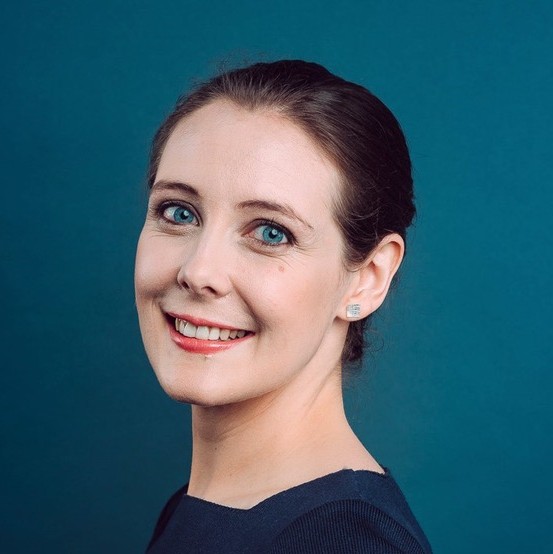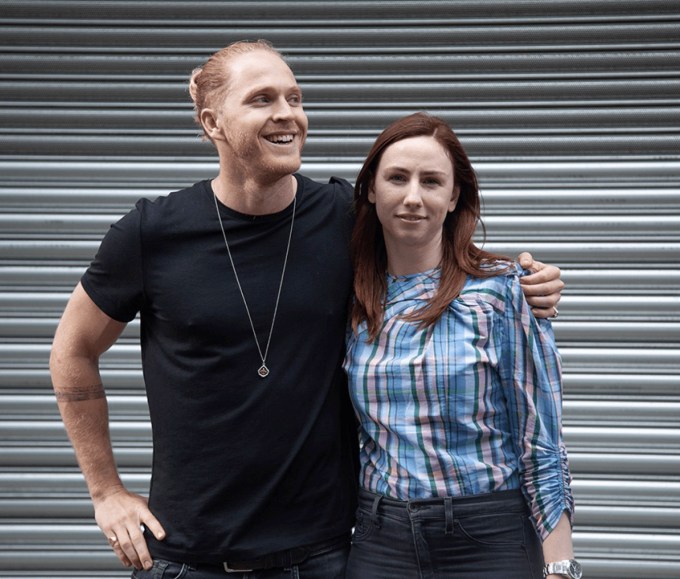The Europas Awards — which have been recognising the hottest European tech startups in since 2009 — are now open for the public voting stage, prior to the formal judging process.
The entries have been sorted and sifted by journalists to compile an editorially-driven ‘long list’ of some of Europe’s most exciting startups and investors.
Voting is now live, so please go and vote!
The public vote will close at midnight (UK time) on MAY 20 11.59 PM (London Time).
The all-star panel of judges will be deliberating on the list and public votes will help to inform the judges’ decision-making process. So get your fans voting and sharing!
The winners will be announced at the online awards ceremony on the evening of 25 June 2020, from London, UK.
The Europas Awards 2019 is sponsored by:



If you are interested in sponsoring The Europas or participating in the workshops as a partner? Get in touch with Claire Dobson // claire@thepathfounder.com. Interested in speaking on the workshops? Contact Dianne See Morrisson // dianne@thepathfounder.com
 THE EUROPAS CATEGORY WORKSHOPS
THE EUROPAS CATEGORY WORKSHOPS
Of key interest to startups will be the opportunity to attend over 20 live workshops built around the awards categories, to which investors will be invited. That’s 20+hours of programming. Shortlisted companies will be able to pitch live on the platform, with slides. In addition, the “Pathfounder Sessions” will offer exclusive workshops with specially invited guests, aimed at European startups raising money at this time.
Attendees will even be able to network virtually and easily exchange contact details, just as you would at a real-world event.
Virtual attendees will be limited to only 500 people, and will include only Investors, Founders and Senior Executives of mid to late-stage companies as well as some of the newest companies on the scene.
The Europas is always attended by journalists from major tech titles, newspapers and business broadcasters, and will still be.
See below or here for the workshops:
Tue May 26
2:00 PM – 2:40 PM GMT +1 (40 Min)
The Europas 2020: AgTech + FoodTech Sector Deep Dive + Pitch
(All broadcasts start 2 mins before the session time)
Wed May 27
2:00 PM – 2:40 PM GMT +1 (40 Min)
The Europas 2020: ClimateTech, GreenTech and Sustainability Tech Sector Deep Dive + Pitch
Thu May 28
2:00 PM – 2:40 PM GMT +1 (40 Min)
The Europas 2020: CyberTech Sector Deep Dive + Pitch
Panelist: Emily Orton, Chief Marketing Officer and Co-Founder, Darktrace
Fri May 29
2:00 PM – 2:40 PM GMT +1 (40 Min)
The Europas 2020: EdTech Sector Deep Dive + Pitch
Mon Jun 01
2:00 PM – 2:40 PM GMT +1 (40 Min)
The Europas 2020: FinTech Sector Deep Dive + Pitch
Tue Jun 02
2:00 PM – 2:40 PM GMT +1 (40 Min)
The Europas 2020: HealthTech Sector Deep Dive + Pitch
Wed Jun 03
2:00 PM – 2:40 PM GMT +1 (40 Min)
The Europas 2020: Mobility Sector Deep Dive + Pitch
Thu Jun 04
2:00 PM – 2:40 PM GMT +1 (40 Min)
The Europas 2020: PropTech Sector Deep Dive + Pitch
Fri Jun 05
2:00 PM – 2:40 PM GMT +1 (40 Min)
The Europas 2020: GovTech, CivTech, RegTech Deep Dive + Pitch
Mon Jun 08
2:00 PM – 2:40 PM GMT +1 (40 Min)
The Europas 2020: Retail and eCommerce Sector Deep Dive + Pitch
Tue Jun 09
2:00 PM – 2:40 PM GMT +1 (40 Min)
The Europas 2020: SaaS and B2B Sector Deep Dive + Pitch
Wed Jun 10
2:00 PM – 2:40 PM GMT +1 (40 Min)
The Europas 2020: Social Innovation Sector Deep Dive + Pitch
Thu Jun 11
2:00 PM – 2:40 PM GMT +1 (40 Min)
The Europas 2020: SpaceTech Sector Deep Dive + Pitch
Fri Jun 12
2:00 PM – 2:40 PM GMT +1 (40 Min)
The Europas 2020: AI Sector Deep Dive + Pitch
Mon Jun 15
2:00 PM – 2:40 PM GMT +1 (40 Min)
The Europas 2020: Blockchain Sector Deep Dive + Pitch
Tue Jun 16
2:00 PM – 2:40 PM GMT +1 (40 Min)
The Europas 2020: Quantum Sector Deep Dive + Pitch
THE PATHFOUNDER WORKSHOPS
The Pathfounder Workshops
Prior to the awards there will be special, premium content events The Pathfounder, designed be a “fast download” into the European tech scene for founders looking to raise money or enhance their business.
Wed Jun 17
2:00 PM – 2:40 PM GMT +1 (40 Min)
The Europas Pathfounder Workshop:
Comms for Startups – What we talk about when we talk about PR
Thu Jun 18
2:00 PM – 2:40 PM GMT +1 (40 Min)
The Europas Pathfounder Workshop:
Negotiating with VCs
Fri Jun 19
2:00 PM – 2:40 PM GMT +1 (40 Min)
The Europas Pathfounder Workshop:
Meet the Press
Mon Jun 22
2:00 PM – 2:40 PM GMT +1 (40 Min)
The Europas Pathfounder Workshop:
Crossing the Chasm: Making the Leap to Series B and Beyond
Tue Jun 23
2:00 PM – 2:40 PM GMT +1 (40 Min)
The Europas Pathfounder Workshop:
How We Scaled: 3 Former Europas Winners Share Their Journey to the Top
Thu Jun 25
6:30 PM – 8:00 PM GMT +1
The Europas Tech Startup Awards 2020
THE AWARDS
The Awards themselves will be announced live on 25th June at an online event which will feature special guests, and live entertainment.
After a decade of identifying the most innovative tech startups in Europe including Spotify, Transferwise, Soundcloud, and Babylon Health, The Europas has shown itself capable of finding Europe’s hottest startups. The Europas Awards is the only independent and editorially-driven event to recognise the European tech startup scene. The winners have been featured in Reuters, Bloomberg, VentureBeat, Forbes, Tech.eu, The Memo, Smart Company, CNET, many others — and of course, TechCrunch.
Timeline of The Europas Awards:
24 April___________Final deadline to submit applications
27 April___________All startups notified of longlist
05 May_____________Public voting begins
17 May_____________Public voting ends
25 May_____________Shortlist announced
26 May – 16 June___Awards Category Deep Dives + Pitches
17- 23 June________Pathfounder Workshops
25 June____________Winners announced / Virtual Awards
The Europas “Diversity Pass”
The awards have set aside a block of free tickets to ensure that pre-seed female and BAME founders are represented at The Europas. This limited tranche of free tickets ensures that it include more women and people of colour who are specifically “pre-seed” or “seed-stage” tech startup founders. If you are a women/BAME founder, apply here for a chance to be considered for one of the limited free diversity passes to the event.
Lastly, remember: stay home, stay safe!
Meet the speakers and judges:

Anne Boden
CEO
Starling Bank
Anne Boden is founder and CEO of Starling Bank, a fast-growing U.K. digital bank targeting millions of users who live their lives on their phones. After a distinguished career in senior leadership at some of the world’s best-known financial heavyweights, she set out to build her own mobile bank from scratch in 2014. Today, Starling has opened more than one million current accounts for individuals and small businesses and raised hundreds of millions of pounds in backing. Anne was awarded an MBE for services to financial technology in 2018.

Bernhard Niesner
CEO and c-founder
busuu
Bernhard co-founded busuu in 2008 following an MBA project and has since led the company to become the world’s largest community for language learning, with more than 90 million users across the globe. Before starting busuu, Bernhard worked as a consultant at Roland Berger Strategy Consultants. He graduated summa cum laude in International Business from the Vienna University of Economics and Business and holds an MBA with honours from IE Business School. Bernhard is an active mentor and business angel in the startup community and an advisor to the Austrian Government on education affairs. Bernhard recently received the EY Entrepreneur of the Year 2018 UK Awards in the Disruptor category.

Chris Morton
CEO and founder
Lyst
Chris is the founder and CEO of Lyst, the world’s biggest fashion search platform used by 104 million shoppers each year. Including over 6 million products from brands including Burberry, Fendi, Gucci, Prada and Saint Laurent, Lyst offers shoppers convenience and unparalleled choice in one place. Launched in London in 2010, Lyst’s investors include LVMH, 14W, Balderton and Accel Partners. Prior to founding Lyst, Chris was an investor at Benchmark Capital and Balderton Capital in London, focusing on the early-stage consumer internet space. He holds an MA in physics and philosophy from Cambridge University.

Claire Novorol
Co-Founder & Chief Medical Officer
Ada Health
Dr. Claire Novorol is Chief Medical Officer and co-founder of Ada Health. Prior to founding Ada, Claire worked as a Paediatrician within the NHS before specialising in Clinical Genetics. She has degrees in Pathology and Medicine as well as a PhD in Neuroscience from the University of Cambridge. Claire is also the founder of Doctorpreneurs, a global community for healthcare professionals interested in innovation and entrepreneurship. She is a member of the Advisory Team Steering Group for the AHSN Network Community for Artificial Intelligence, an Entrepreneurship Expert with the Entrepreneurship Centre at Saïd Business School, University of Oxford and a member of the UK Digital Health Council. In 2018, Claire was featured on Business Insider’s Tech 100: The 100 coolest people in UK tech and Forbes’ Europe’s Top 50 Women in Tech, and she is a regular contributor to Forbes, writing on healthtech.

Clare Jones
Chief Commercial Officer
what3words
Clare is the chief commercial officer of what3words; prior to this, her background was in the development and growth of social enterprises and in impact investment. Clare was featured in the 2019 Forbes 30 under 30 list for technology and is involved with London companies tackling social/environmental challenges. Clare also volunteers with the Streetlink project, doing health outreach work with vulnerable women in South London.

Emily Orton
Co-founder & Chief Marketing Officer
Darktrace
Emily is responsible for global marketing and communications, a role she has held since Darktrace’s foundation in 2013. She is also a commentator on cyber security issues and has appeared in leading media outlets including BBC News, Sky News and Channel 4. Emily has ten years’ experience in technology marketing. She has an MA in Modern Languages from the University of Cambridge.

Holly Jacobus
Investment Partner
Joyance Partners, New York
Holly Jacobus is an Investment Partner with Joyance Partners, investing in companies with the capacity to deliver Delightful Moments in US and EU. Her focus is new foods, consumer packaged goods, sexual wellness, femtech, farmtech and earth-positive manufacturing methods. Holly spent her career growing startups through early stage sales and PR, most recently as the Chief Revenue Officer at Citia, a NYC based global content creation, storage and distribution platform servicing Fortune 500 brands including GE (global), Mastercard (US), Viacom (global), and P&G (global). Holly was raised on a farm in California where she became the first graduate of Stanford University’s online high school (EPGY OHS) and an Academic All American Volleyball Player. She later studied bioengineering at UC Berkeley and French at Georgetown University where she played D1 Volleyball. When Holly isn’t investing or helping companies scale, you can find her backpacking the Sierra Nevadas or skiing the Tetons with her dog Smoky. Recent investments include: Unbound, WholyMe, TeaCrush, Finless Foods, Loli, MushLab, Weller, & Sigrid Therapeutics.

Husayn Kassai
CEO and co-founder
Onfido
Husayn Kassai is the Onfido CEO and co-founder. Onfido helps businesses digitally onboard users by verifying any government ID and comparing it with the person’s facial biometrics. Founded in 2012, Onfido has grown to a team of 300 across SF, NYC and London; received over $100 million in funding from Salesforce, Microsoft and others; and works with over 1,500 fintech, banking and marketplace clients globally. Husayn is a WEF Tech Pioneer; a Forbes Contributor; and Forbes’ “30 Under 30”. He has a BA in economics and management from Keble College, Oxford.

Julia Bosch
Founder and CEO
Outfittery
Originally from beautiful Bodensee, Julia studied business studies in Munich, Madrid and New York. Before starting Outfittery with Anna she led the internationalization of Zalando in Europe.

Julia Hawkins
Partner
LocalGlobe
Julia Hawkins is a Partner at LocalGlobe. Previously, Julia worked at Goldman Sachs, Last.fm, BBC Worldwide and most recently Universal Music where she set up their Corporate Venture arm and led investments in ROLI and Sofar Sounds among others. Julia enjoys working with mission driven founders and has a keen interest in consumer, entertainment, media and health tech from wellness to genomics. She holds a 1st from LSE, is a Kauffman Fellow and Board Trustee of Shwachman Diamond Syndrome UK, a charity dedicated to finding a cure for SDS, a rare genetic disease.

Kieran O’Neill
CEO and co-founder
Thread
Thread makes it easy for guys to dress well. They combine expert stylists with powerful AI to recommend the perfect clothes for each person. Thread is used by more than 1 million men in the U.K., and has raised $35 million from top investors, including Balderton Capital, the founders of DeepMind and the billionaire former owner of Warner Music. Prior to Thread, Kieran founded one of the first video sharing websites at age 15 and sold it for $1.25 million at age 19. He was then CEO and co-founder of Playfire, the largest social network for gamers, which he grew to 1.5 million customers before being acquired in 2012. He’s a member of the Forbes, Drapers and Financial Times 30 Under 30 lists.

Leanne Kemp
Founder & CEO
Everledger
Leanne Kemp is the Founder & CEO of Everledger, a leading emerging technology enterprise that tracks the provenance of high-value assets on a global digital ledger in an authenticated immutable manner. Using her extensive background in emerging technology, business, jewellery and insurance, Leanne is pushing boundaries with Everledger in building a global verification system that asserts transparency along the entire supply chain process. This enables the tracking and protection of high-value assets, consequently mitigating risk and fraud in global marketplaces. Her leadership role in technology has been recognised, winning awards including Innovator of the Year 2018 at the Women in IT Awards (London) as well as being named in UK Business Insider’s 26 Coolest Women in UK Tech 2016 and Brummell Magazine’s Top 30 Female Innovators 2016 in Brummell Magazine. She has also been named an IBM Champion for 2018. Leanne is an appointed member of the World Economic Forum’s Blockchain Council and a Co-Chair for the World Trade Board’s Sustainable Trade Action Group. She is also on the IBM Blockchain Platform Board of Advisors.

Lina Wenner
Principal
Firstminute Capital
Lina joined firstminute from the Boston Consulting Group, where she worked alongside global corporates across Consumer, Energy and Heavy Industrials, advising on digital strategy, restructuring and M&A as a member of the corporate finance team. She gained an MPhil in Management from the University of Cambridge and a Bachelor’s degree in Psychology, Economics and Statistics from the University College Utrecht, the Netherlands, where she graduated with Summa Cum Laude. At firstminute, Lina leads on sourcing for the Nordic and German-speaking regions and has a strong interest in digital health, robotics, direct-to-consumer brands and femtech. She sits as a board observer of Evolution AI.

Luca Bocchio
Principal
Accel
Luca Bocchio joined Accel in 2018 and focuses on consumer internet, fintech and software businesses. Luca led Accel’s investment in Luko, Bryter and Brumbrum. Luca also helped lead Accel’s investment and ongoing work in Sennder. Prior to Accel, Luca was with H14, where he invested in global early and growth-stage opportunities, such as Deliveroo, GetYourGuide, Flixbus, SumUp and SecretEscapes. Luca previously advised technology, industrial and consumer companies on strategy with Bain & Co. in Europe and Asia. Luca is from Italy and graduated from LIUC University.

Nate Lanxon (Speaker)
Editor and Tech Correspondent
Bloomberg
Nate is an editor and tech correspondent for Bloomberg, based in London. For over a decade, he has particularly focused on the consumer technology sector, and the trends shaping the global industry. Previous to this, he was senior editor at Bloomberg Media and was head of digital editorial for Bloomberg.com in Europe, the Middle East and Africa. Nate has held numerous roles across the most respected titles in tech, including stints as editor of WIRED.co.uk, editor-in-chief of Ars Technica UK and senior editor at CBS-owned CNET. Nate launched his professional career as a journalist by founding a small tech and gaming website called Tech’s Message, which is now the name of his weekly technology podcast hosted at natelanxon.com.

Tania Boler
CEO and founder
Elvie
Tania is an internationally recognized women’s health expert and has held leadership positions for various global NGOs and the United Nations. Passionate about challenging taboo women’s issues, Tania founded Elvie in 2013, partnering with Alexander Asseily to create a global hub of connected health and lifestyle products for women.

Raph Crouan
Venture Partner
C4 Ventures
Raph Crouan is a Venture Partner at C4 Ventures. He’s a Senior Adviser, Investor (>30 companies / managing a portfolio of 25 active companies & 1 exit on angel investment) & International Keynote Speaker (Europas, Pioneers, BDLA, DFF, ArabNet, Unbound, Latitude59, Slush, TechChill, ImpactCEE, LIS, SouthSummit, etc…) with a background in Sales, Marketing & Strategic Biz Dev (>10y @ Apple, Telco etc). He previously founded, fundraised & managed the Startupbootcamp IoT Program until 2018 for which they screened >1500 early stage companies & invested in ~10 every year. Contributor to Forbes, he recently wrote about its closure in early 2019 here. He’s also the President & Founding member for the FrenchTech organisation in the UK, a Founding Management Board Member at the AIOTI (Alliance for IoT Innovation) at the European Commission & a Founding Board Member of the French IoT Think Tank.





 THE EUROPAS CATEGORY WORKSHOPS
THE EUROPAS CATEGORY WORKSHOPS


















